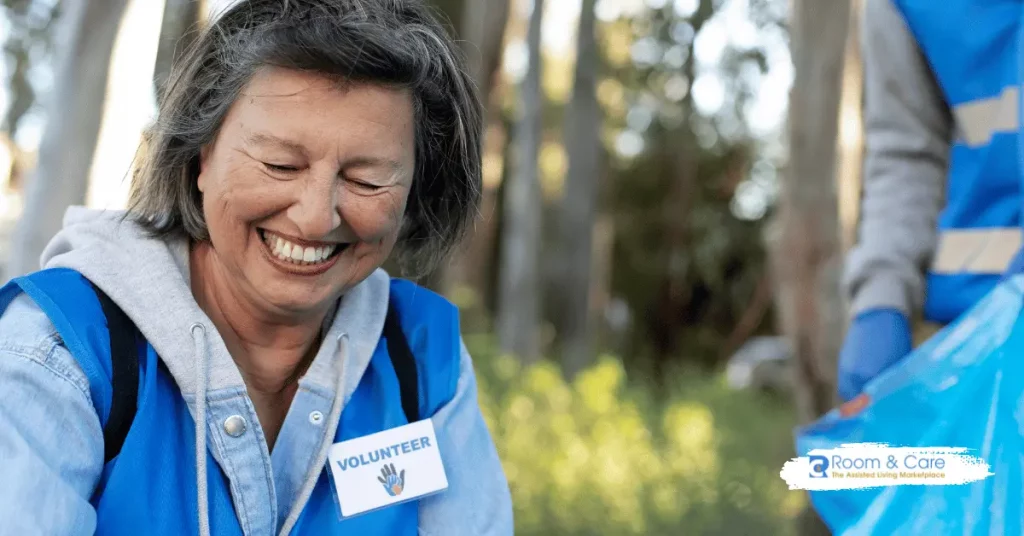

Volunteering in elderly care homes is a profoundly rewarding experience that not only uplifts the lives of seniors but also enriches the lives of volunteers. With an aging population and a growing need for compassionate care, contributing your time and energy to adult family homes or assisted living facilities can make a significant difference. This article delves into the importance of volunteering in elderly care homes, key considerations, and practical advice for getting started.
Elderly care homes, including adult family homes and assisted living facilities, serve as havens for seniors who need assistance with daily activities or specialized care. Unfortunately, many seniors in these settings face loneliness or a lack of social interaction, which can negatively impact their mental and emotional well-being. Volunteers bring companionship, joy, and a sense of connection, fostering a more vibrant and inclusive environment.
Volunteering is not only beneficial for the elderly but also for the volunteers. Studies have shown that volunteering can improve mental health, reduce stress, and promote a sense of purpose. By offering your time to elderly care homes, you create meaningful relationships while contributing to a noble cause.
Adult family homes are small, residential settings that provide personalized care to seniors. With typically fewer residents, these homes offer a family-like atmosphere. Volunteers can engage in one-on-one activities, such as reading, playing games, or simply chatting with residents.
Assisted living facilities are larger communities that provide seniors with the support they need to maintain independence. These facilities often have organized activities, social events, and wellness programs where volunteers can participate or assist staff in coordinating events.
Understanding the unique environments of these care homes helps tailor your volunteer efforts to the specific needs of residents and staff.

Before committing, evaluate how much time you can dedicate to volunteering. Whether it’s a few hours a week or more, consistency is vital for building trust and forming meaningful connections with residents.
Think about what you can bring to the table. Do you enjoy crafting, playing music, or teaching? Your unique talents can significantly enhance the experience for residents. Even if you lack specific skills, a friendly demeanor and willingness to help go a long way.
Many care homes have requirements for volunteers, such as background checks, training, or health clearances. Familiarize yourself with these prerequisites to ensure a smooth onboarding process.
Look for adult family homes or assisted living facilities in your community. Websites like Room and Care can help you find care homes that align with your interests. Room and Care connects users with a variety of care options without referral fees or middlemen, ensuring direct and cost-effective access.
Contact the care home to express your interest in volunteering. Ask about available opportunities, requirements, and the best way to contribute. Being proactive demonstrates your commitment and enthusiasm.
Many care homes offer orientation sessions to familiarize volunteers with their policies, procedures, and resident needs. Training ensures you are well-equipped to provide meaningful assistance.
If you’re new to volunteering, begin with manageable tasks and gradually take on more responsibilities as you gain confidence and experience.
Spending time with residents through conversations, storytelling, or sharing hobbies can brighten their day and foster a sense of connection.
Assist in organizing games, art classes, or music sessions. Such activities provide mental stimulation and promote social engagement among residents.
Help residents with light physical activities, such as walking or participating in gentle exercise routines. Always ensure you have proper training for physical assistance tasks.
Volunteer for holiday celebrations, birthdays, or community events. These occasions bring joy and create lasting memories for residents.
Understand that some residents may take time to open up. Approach interactions with patience and a compassionate attitude.
Show genuine interest in their stories and experiences. Active listening fosters trust and deepens your connection with residents.
While forming bonds is important, always respect residents’ personal space and preferences.

Most care homes welcome volunteers with no prior experience. They often provide training and support to help you get started.
It’s natural to feel apprehensive initially. Start with small tasks and gradually build your confidence.
If you encounter challenges, seek guidance from staff or experienced volunteers. Communication and teamwork are key.
Many care homes offer flexible volunteer opportunities to accommodate varying schedules. Even a few hours can make a difference.
Volunteering in elderly care homes has a ripple effect. Your presence and kindness improve the quality of life for residents while inspiring others in the community to give back. Furthermore, it fosters a culture of compassion and solidarity, creating a more inclusive society.
If you’re ready to make a difference, start exploring elderly care homes near you today. Visit Room and Care to discover the best adult family homes, assisted living facilities, memory care communities, and more. With no referral fees or middlemen, Room and Care ensures direct access to quality care options that suit your needs.
Volunteering in elderly care homes is not just about giving—it’s about growing, learning, and building connections that last a lifetime. Take the first step today and experience the profound joy of making a positive impact on the lives of seniors.